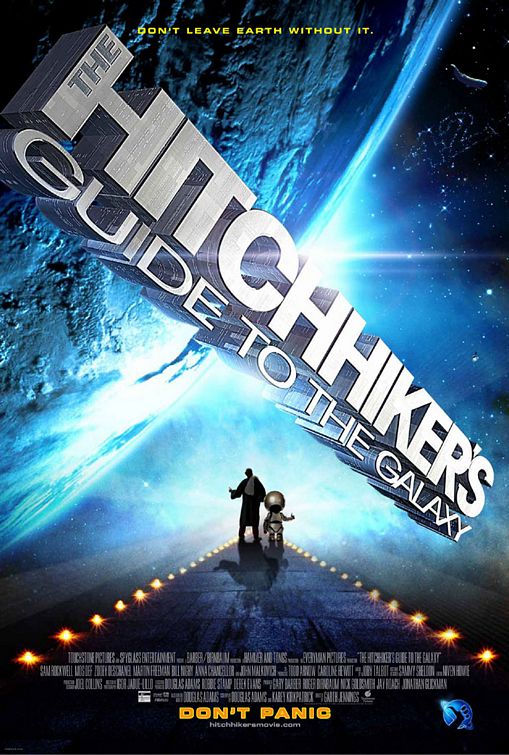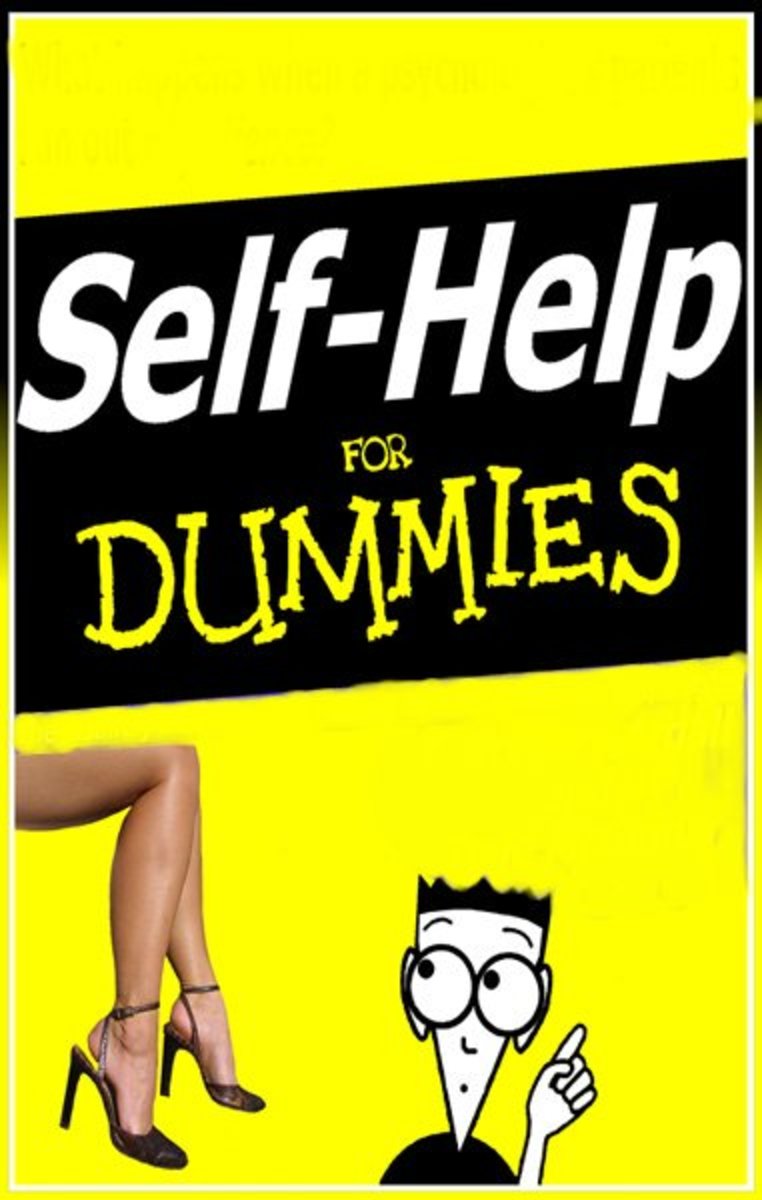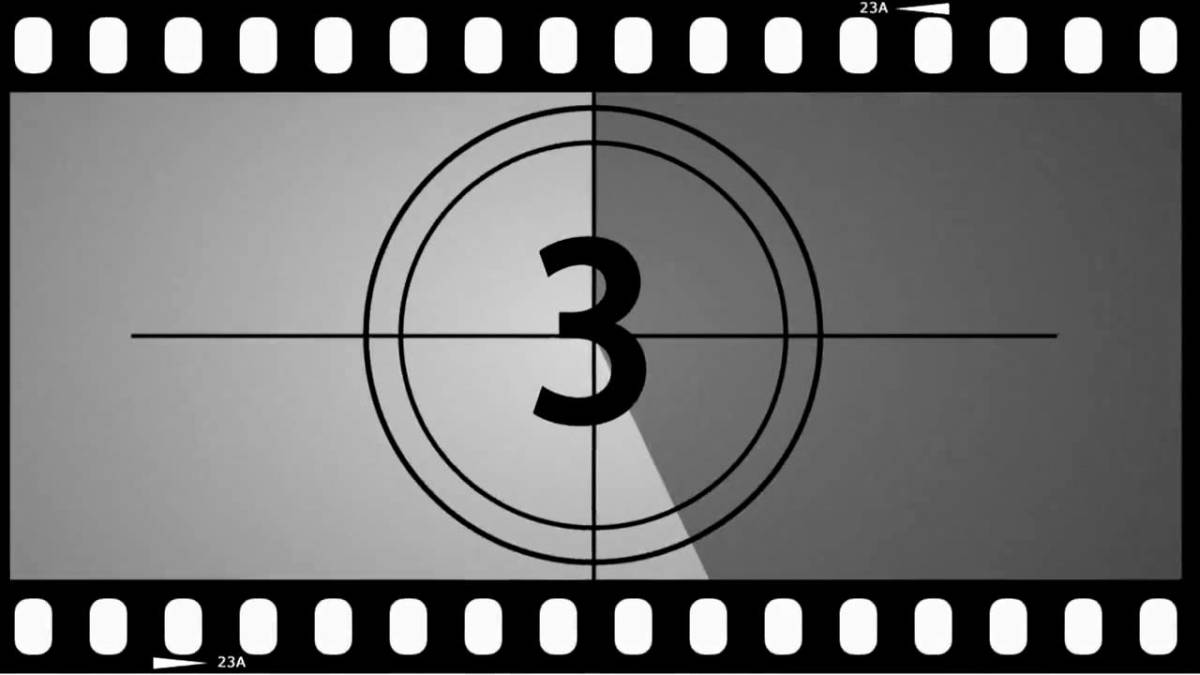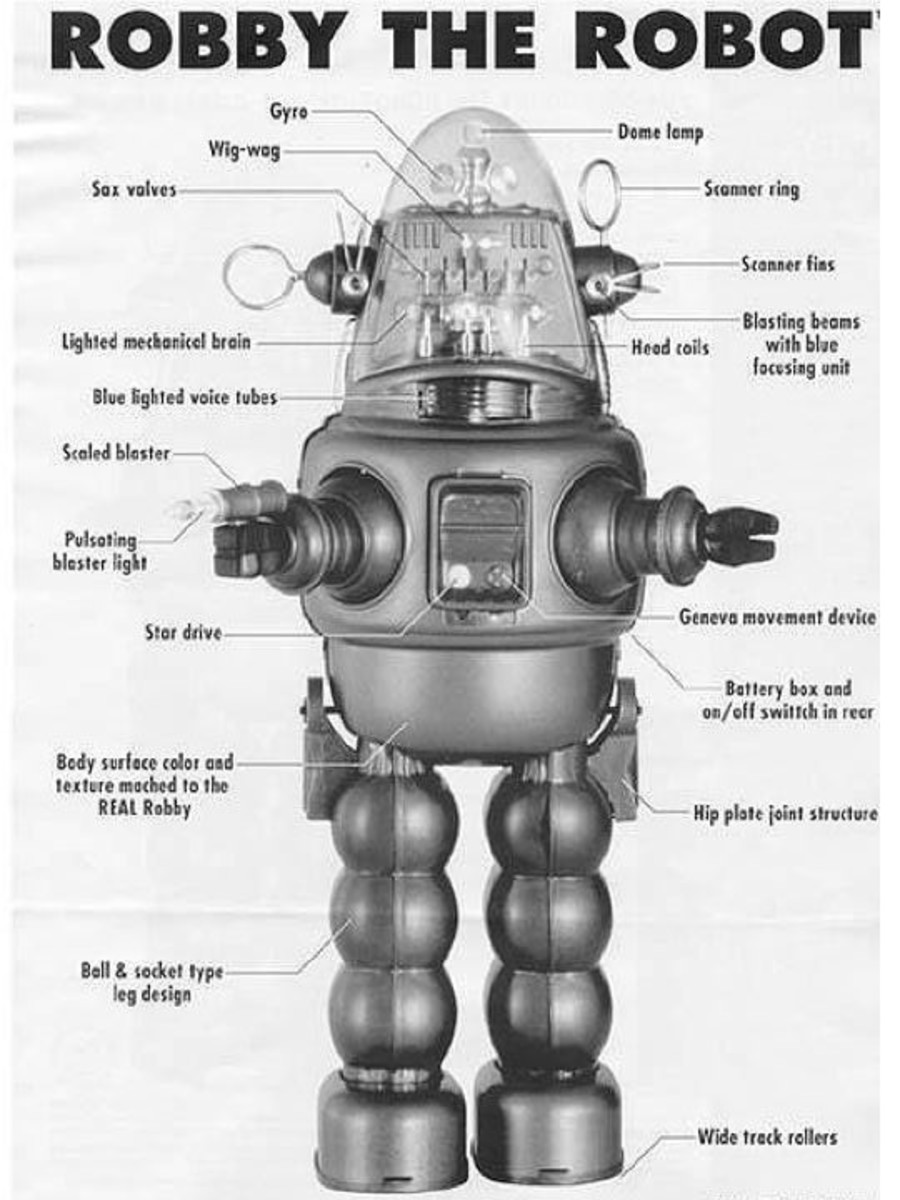Hitchhiker's Guide to the Galaxy: The Movie vs. The Book vs. The Movie

Part 1: The Birth of a Hitchhiker's Fan
I was one of the uneducated ones. I saw the 2005 movie version of Hitchhiker's Guide to the Galaxy before I read Douglas Adams's book. I'm not even sure why I never read the books. Perhaps it's because I never really had anyone recommend them to me, which must mean I never knew anyone cool enough to recommend them until my late twenties. It was then that a friend urged another friend to read the first book. Shortly thereafter, I discovered and read the second book in the series, The Restaurant at the End of the Universe, at an apartment where I was housesitting. I figured since I had seen the movie, I would be able to figure out what was going on, and indeed it did make sense. But I also noticed that this book was infinitely more hilarious than the movie I had seen.
Inevitably, I then went backwards and read the book version of Hitchhiker's Guide to the Galaxy, and I found even more hilarity. It had been six years since I had seen the movie, and some lines and situations felt familiar, but I could not remember exactly how different the movie was from the book. I remembered the movie's depiction of the semi-evil, bureaucratic Vogons, who appear in the first half of the book. And unfortunately, I could not stop depicting Mos Def as Ford Prefect and Zooey Deschanel as Trillian. Still, the book was one of the wittiest and most exciting adventures I had ever read. So I decided I should give the movie a second chance.
Before I did this, I watched the first few episodes of the 1980s BBC miniseries with the same friend who had recommended the books. We found that entire lines of dialogue and most of the situations of the book remained intact, most likely because the book was basically a novelization of the radio series, which in turn was converted to television fairly easily, except for the need to create all of the visual components. It is in this regard that the miniseries falls short. The Vogons here are not at all entertaining. In fact, Prostentic Vogon Jeltz seems to be reading his lines from cue cards and not emphasizing the proper words. Further, we both thought Simon Jones's Arthur Dent was just slightly overbearing and not sympathetic enough. This could be a controversial opinion, as Douglas Adams did write the role specifically for Jones, but as a viewer, I found original The Office star Martin Freeman's take to be more in line with what I imagined in the books. Upon re-watching that 2005 film, however, I would realize that his characterization of Arthur was one of the few redeeming qualities of the overall work.
Part 2: Re-Evaluating the Film
For the first 54 minutes of the 2005 Hitchhiker's Guide to the Galaxy, any fan of the books should be relatively pleased. Sure, some exchanges and situations have been altered to save time, but the basic plot structure remains intact. Also, some of the casting choices are questionable, but this doesn't completely destroy the film's integrity. As an American, I would be the first to admit that there are too many Americans playing integral roles here. Luckily, they don't try to fake British accents, but their lack of accents is also confusing, given that the first half of the first act is set in England. Despite all of this, however, the first 54 minutes are relatively pleasing. The special effects are top notch: the aforementioned Vogons are disgusting looking but entertaining in a strange way, Marvin is pathetic-looking but endearing, and the inside of the space ship Heart of Gold is just as one might imagine it. But around that dreaded 54 minute mark, things begin to go dreadfully awry.
It is around that time that the film begins to assert itself as the “Hollywood version” of the classic radio series and novel. John Malkovich makes an appearance as a strange character invented specifically for the movie by Douglas Adams himself (before his untimely death). The resulting sequence is strangely unnerving and not befitting of the film's previous tone. Further events continue to stray from the original plotline, placing the previously powerful female Trillian into a standard damsel-in-distress scenario, from which she must be rescued by our three (and a half, counting Marvin) male heroes. Once again, Hollywood's prevailing chauvinism rears its ugly head. And so do the Vogons, who now become the film's main villains, having been hired to chase down Galaxy President Zaphod Beeblebrox, and in turn having imprisoned Trillian for supposedly endangering Zaphod. When Arthur and pals finally reach the Vogon compound, they are forced to rescue Trillian through a maze of paperwork, which takes some of the sting out of what would be a frankly insulting female-in-distress scenario, but the filmmakers cannot be entirely forgiven for including this tired premise in the first place.
When the film does attempt to return to the original plotline, it now feels like a diversion from the new plot it has established. Arthur discovers who really commissioned the building of the Earth, but this is only used to set up a possible happy-ending, everything-back-to-normal scenario. It seems we are supposed to applaud Arthur for his reaction to this scenario, but even this seems like tired tripe, along with the sappy resolution of Arthur and Trillian's previously non-existent “relationship.” In fact, the final insult to the several injuries suffered by the film's viewers can be summed up by four-word line of dialogue from Arthur: “Is she the one.” With this, the film settles into a tired romantic-comedy environment, and the reappearance and vanquishing of the Vogons is another completely new—and completely unnecessary—invention intended to tie the film up with a neat little bow.
After watching the second half of the film, any fan of the books who was impressed by the first 54 or so minutes should now be seriously confused. One is left to wonder why the filmmakers (and perhaps even the late Douglas Adams himself, who had worked on the screenplay for years) felt it necessary to shift so many elements around and invent new occurrences, ostensively in order to make the film more palatable to mainstream moviegoers. As I recall, mainstream promotion for the film was rather lacking at the time of its release. Perhaps the studio felt that enough of a fan base was already built in to ensure the film's success. But in order to satisfy this fan base, they obviously should have made a movie that adhered more closely to the source material. Because if the existing fan base was delighted with the film, this would have almost guaranteed repeat visits to the theater with more friends, and word of mouth would have done the marketing department's job for them. As it was, many fans were disappointed by the changes, and the film just broke even in worldwide box office receipts.
An Unfortunate Conclusion, With Solace
As a viewer initially unaware of the world of Douglas Adams's books, I was mildly entertained by the 2005 version of Hitchhiker's on first viewing. But six years later, having read the first two books in the series, my opinion had drastically changed. The film still looks nice, and its quirky animated sequences add a certain charm. But because of the story-changing decisions made by the filmmakers, many fans of the books (now including myself) felt betrayed, and thus the film's reception was just slightly less than lukewarm. Unfortunately, this means that we will likely never see a more faithful film adaption of either the first book (again) or its equally entertaining sequel. But for those able to read and imagine the zany world of Douglas Adams for themselves, the first two books will always hold innumerable treasures of amusement.






